Compromisso
Upfarming
Promovemos cidades mais comestíveis e conectadas, através de projetos de horticultura urbana que fortalecem a relação entre pessoas, alimentos e território.
Acreditamos numa abordagem acessível e colaborativa, onde cultivar é também transformar — comunidades, espaços e futuros.
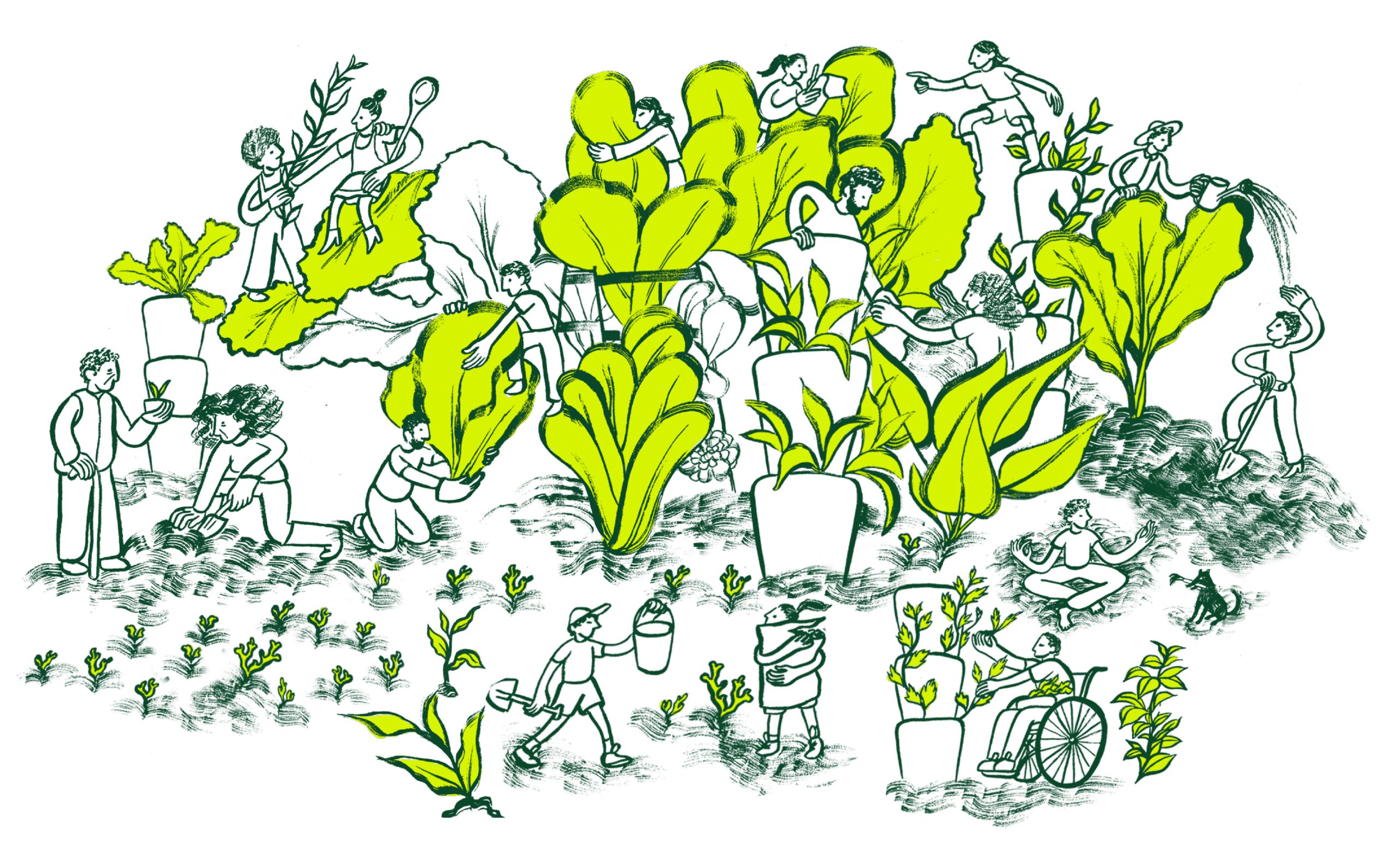
Cultivar
com Impacto
Os nossos projetos estão organizados em quatro portefólios: escolas, prisões, bairros e hospitais. Cada projeto fomenta a literacia alimentar, o bem-estar e a ligação entre as pessoas, regenerando o ambiente urbano.
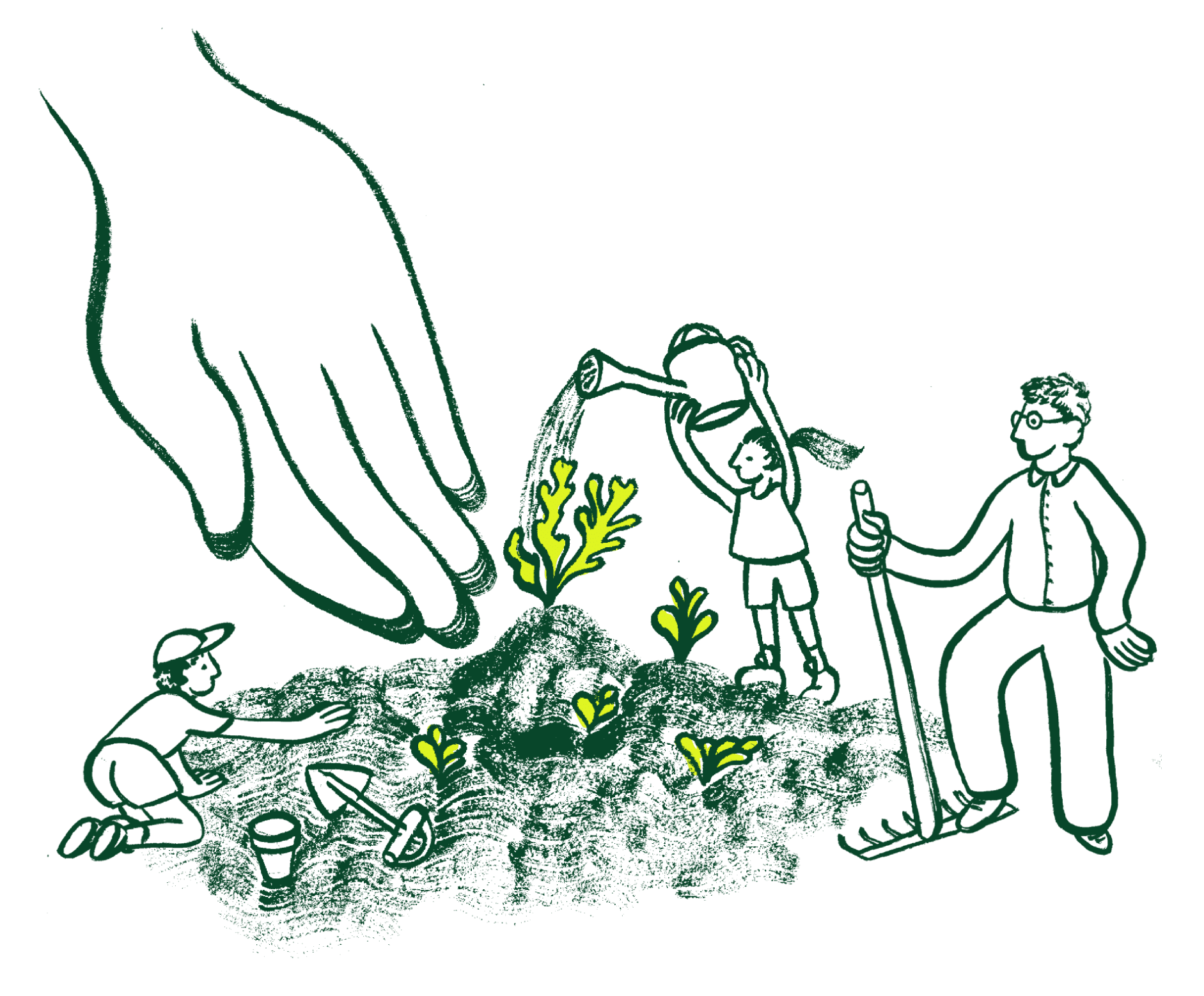
Escolas
Hortas pedagógicas que promovem a literacia alimentar e o contacto com a natureza.
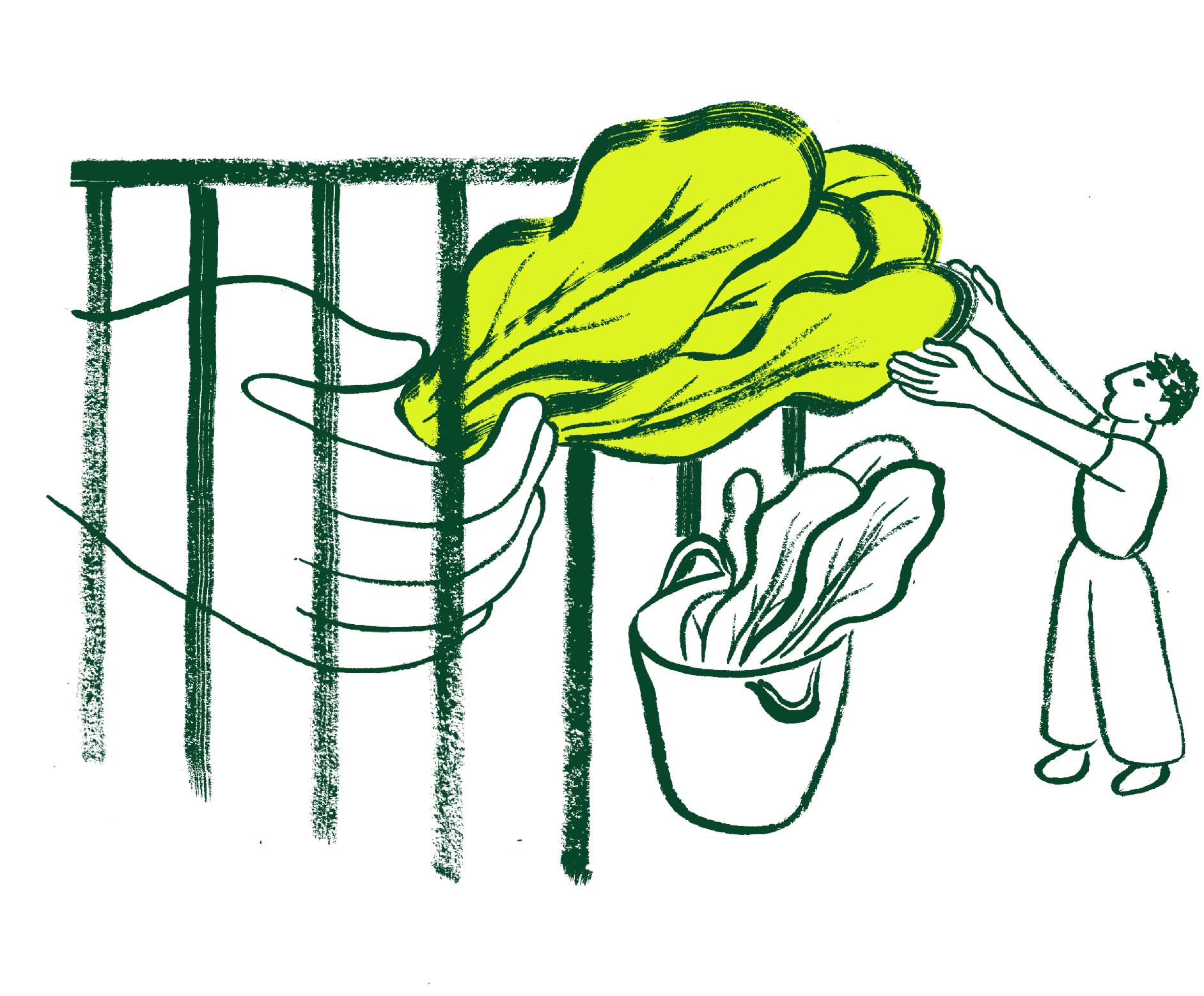
Prisões
Espaços verdes que contribuem para a capacitação, dignificação e reinserção social.
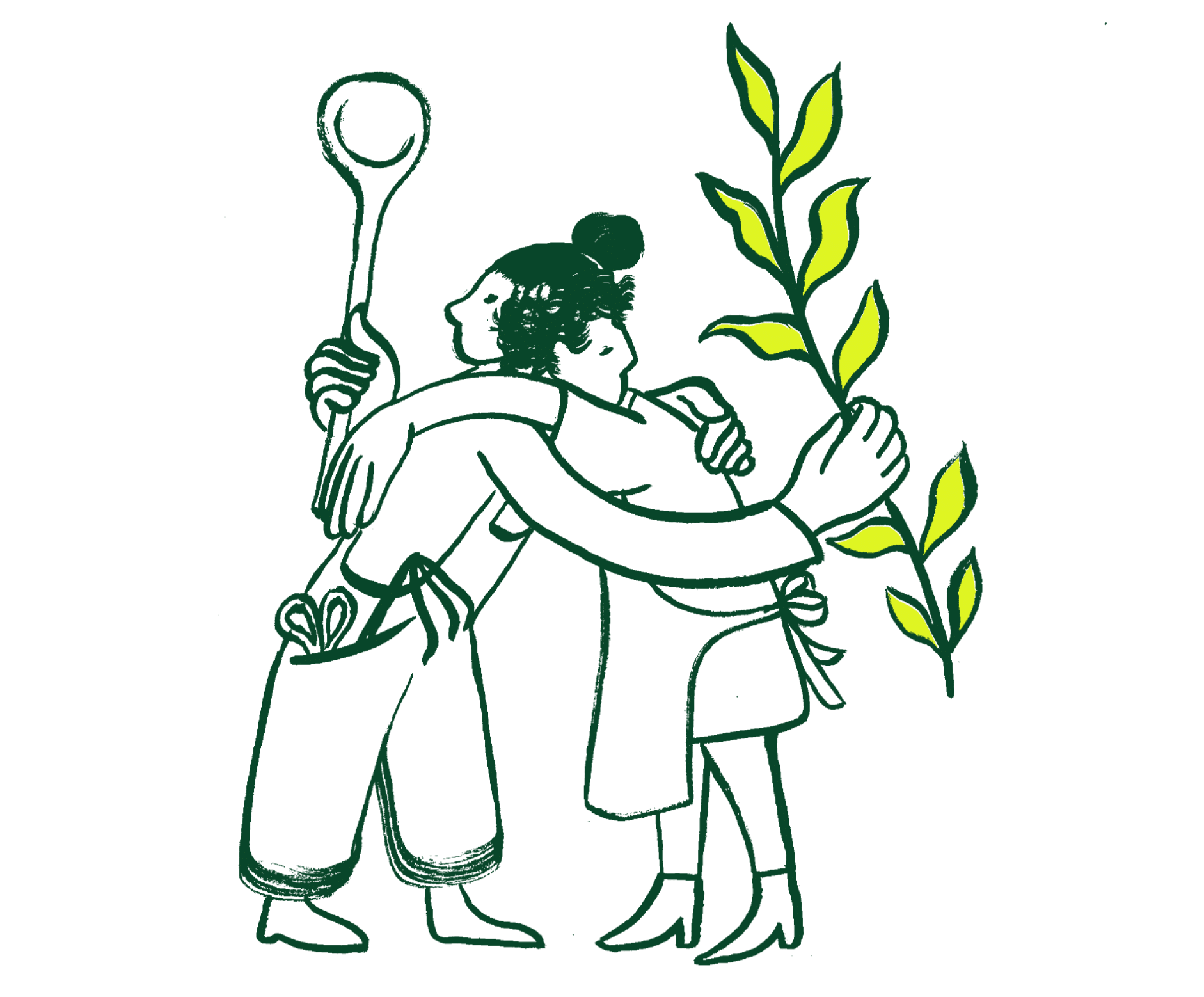
Bairros
Hortas comunitárias que cultivam as relações locais e regeneram o espaço urbano

Hospitais
Ambientes terapêuticos que promovem o bem-estar físico e emocional de utentes e profissionais
Horticultura
Vertical
A horticultura vertical é a base das nossas intervenções – uma solução prática, acessível e ecológica para transformar espaços urbanos em lugares produtivos, educativos e comunitários.
As nossas hortas verticais são pensadas para se adaptarem aos diferentes contextos, transformando espaços urbanos em ambientes vivos de aprendizagem, produção e bem-estar.
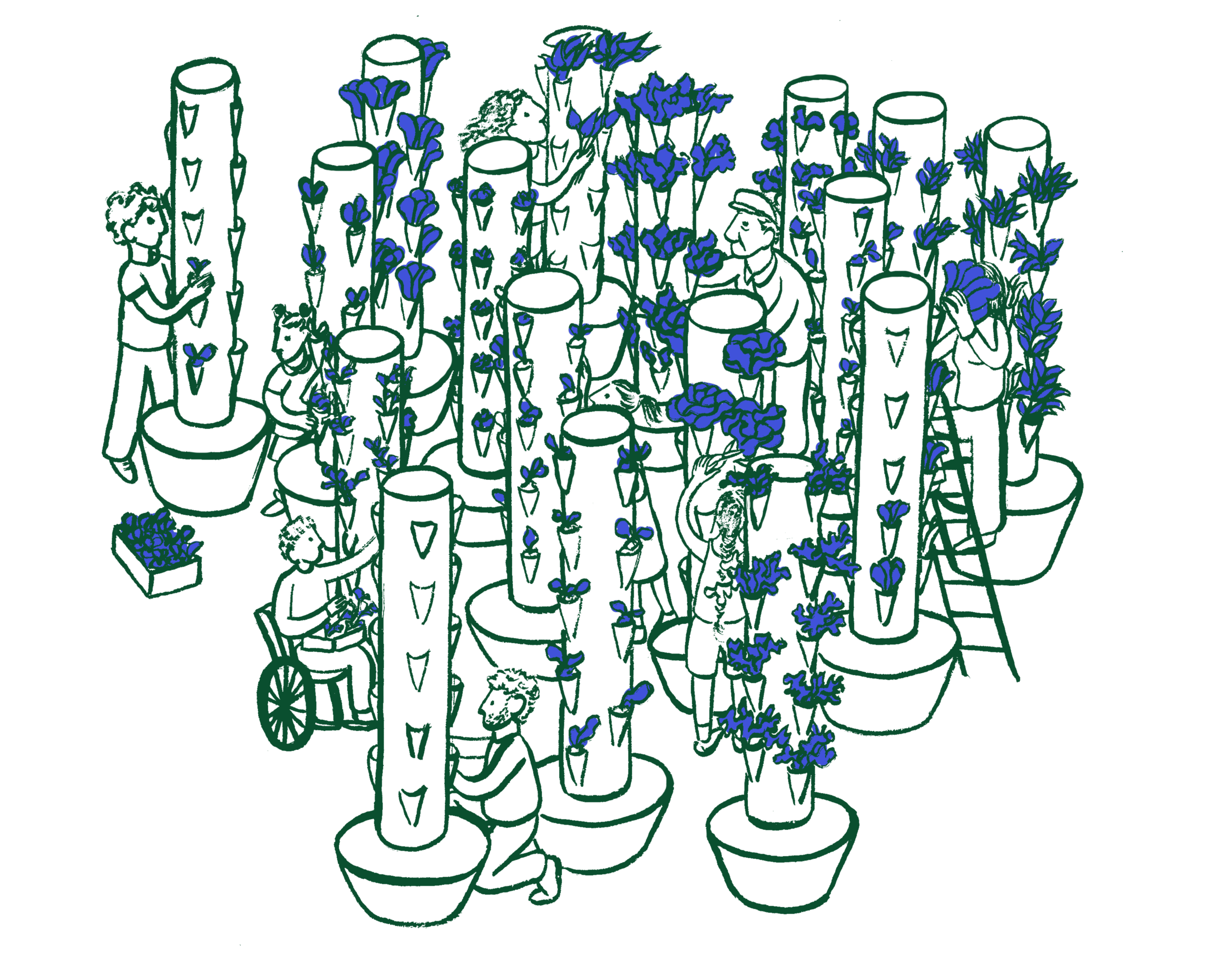
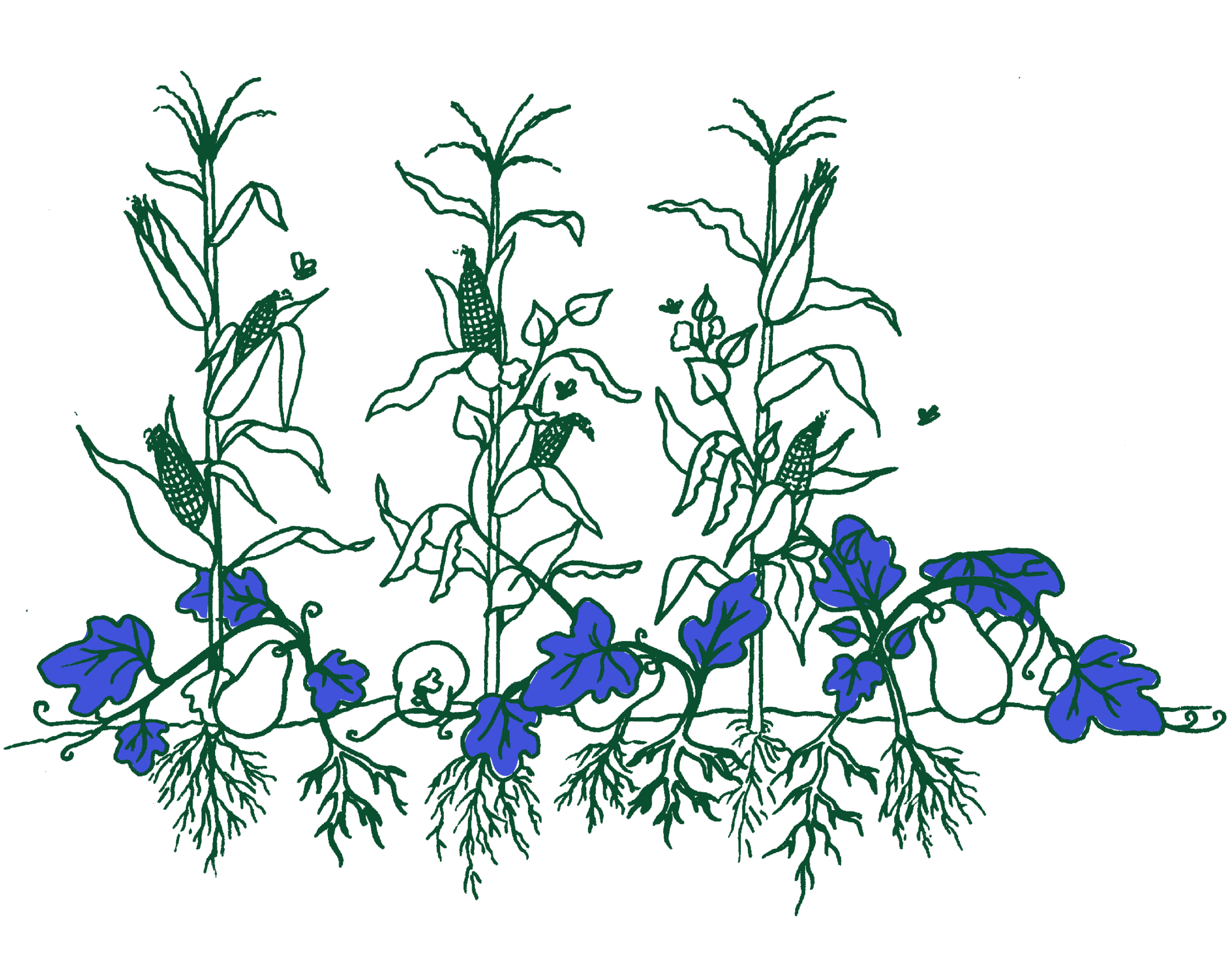
Horta Horizontal
Um espaço de cultivo no solo onde todos podem pôr as mãos na terra. Ideal para envolver grupos no dia a dia da horta.

Agrofloresta
Uma forma de cultivar que respeita os ritmos da natureza. Junta diferentes espécies num só espaço, promovendo colaboração entre plantas e pessoas.
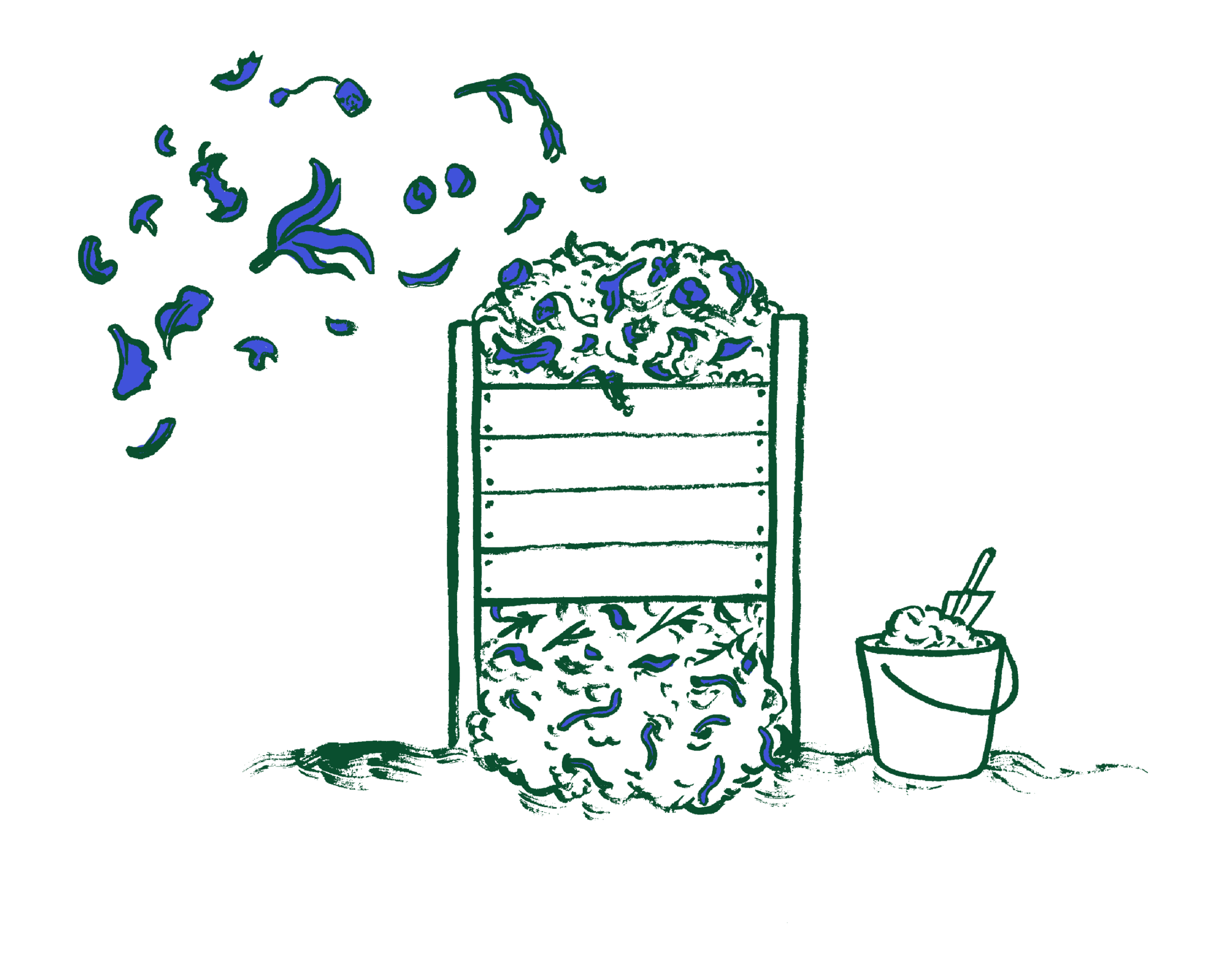
Compostagem
Uma prática regenerativa que devolve à terra o que dela veio. Transforma resíduos em recursos, nutrindo o solo e fortalecendo comunidades.
Impacto
Medido em
Números
2461
Nº de beneficiários
alcançados
6900
Kg de alimentos
distribuídos
292
Cabazes doados ao
banco alimentar
Testemunhos de Transformação
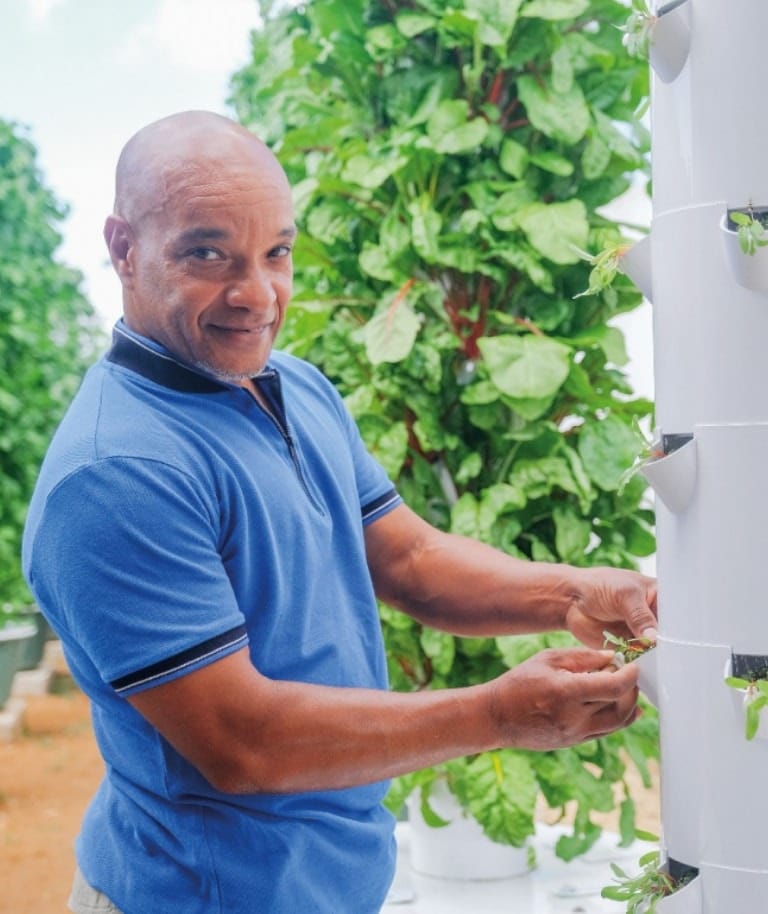
“Adoro isto. É como cuidar de um filho, com amor. Sinto-me feliz no meio destas plantas”.
Lúcio Tavares
beneficiário do projeto no EP de Torres Novas
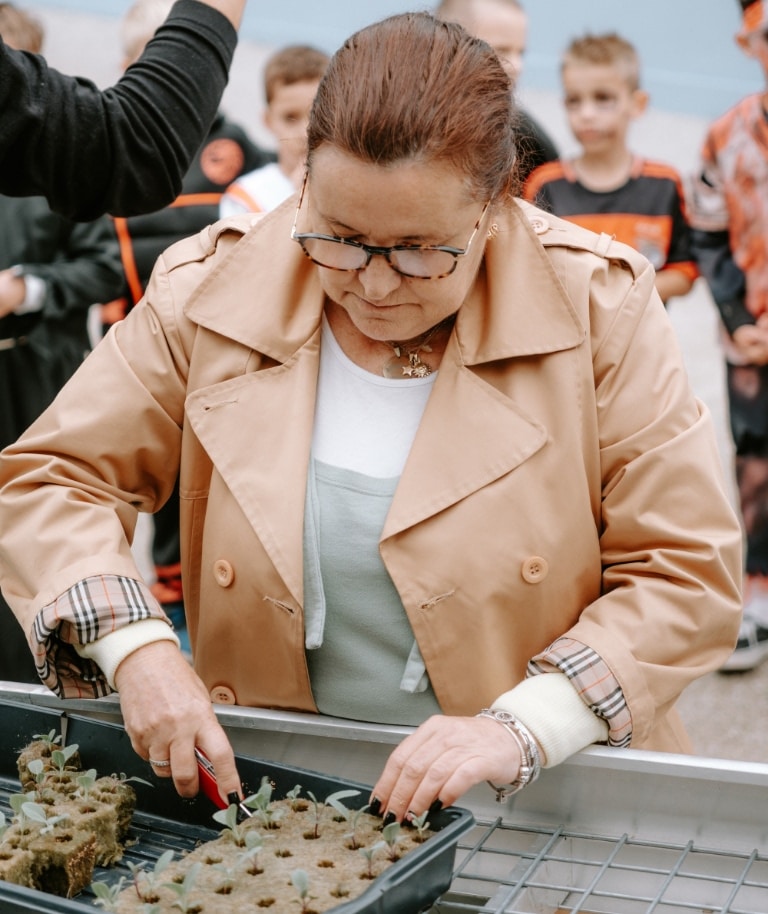
“O projeto Upfarming promove hortas com foco educativo e comunitário, incentivando a segurança e literacia alimentares para um futuro mais verde.”
Jorgelina Mendes
professora na EB Dom Luís da Cunha
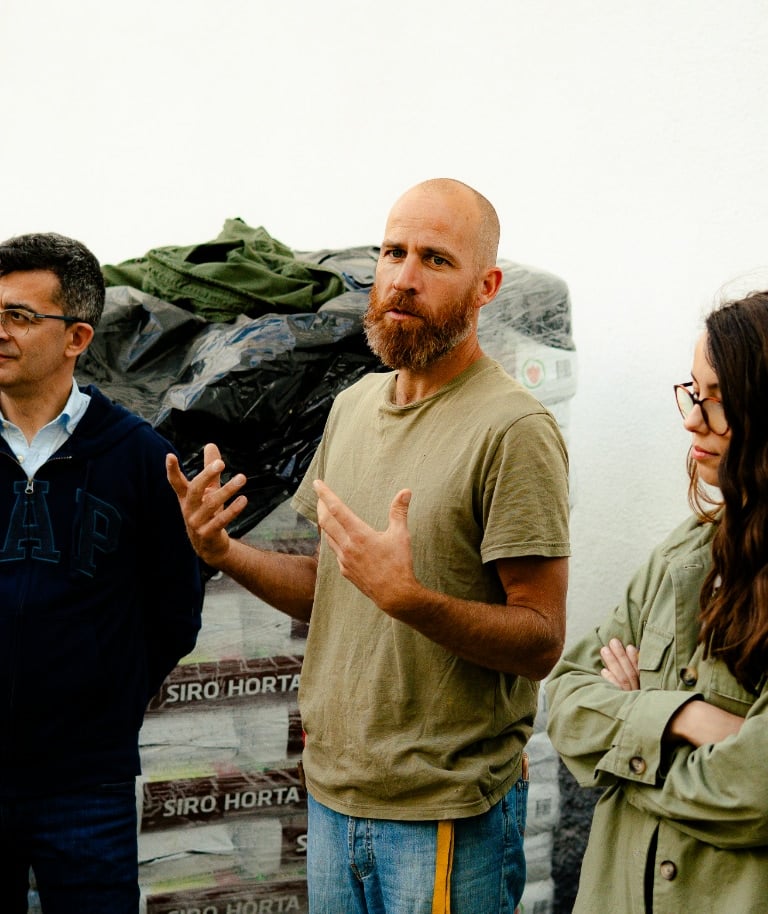
“É com muito orgulho que colaboro com esta equipa incrível da Upfarming, juntos estamos a transformar Lisboa numa cidade mais verde e onde se produz alimento”.
Joaquim Espada
consultor de agrofloresta
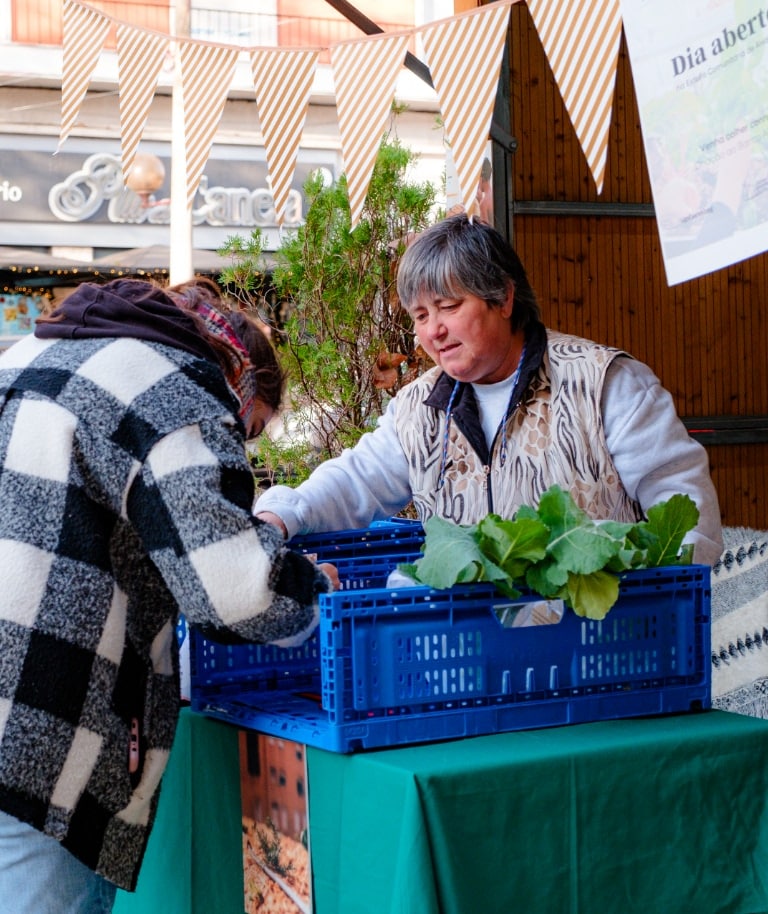
“Cuidar da estufa faz-me sentir viva, útil e feliz. É o meu remédio, onde a terra e a alegria me acompanham. Sinto-me em paz”.
Laura Nobre
beneficiária do projeto da Estufa Comunitária de Alvalade
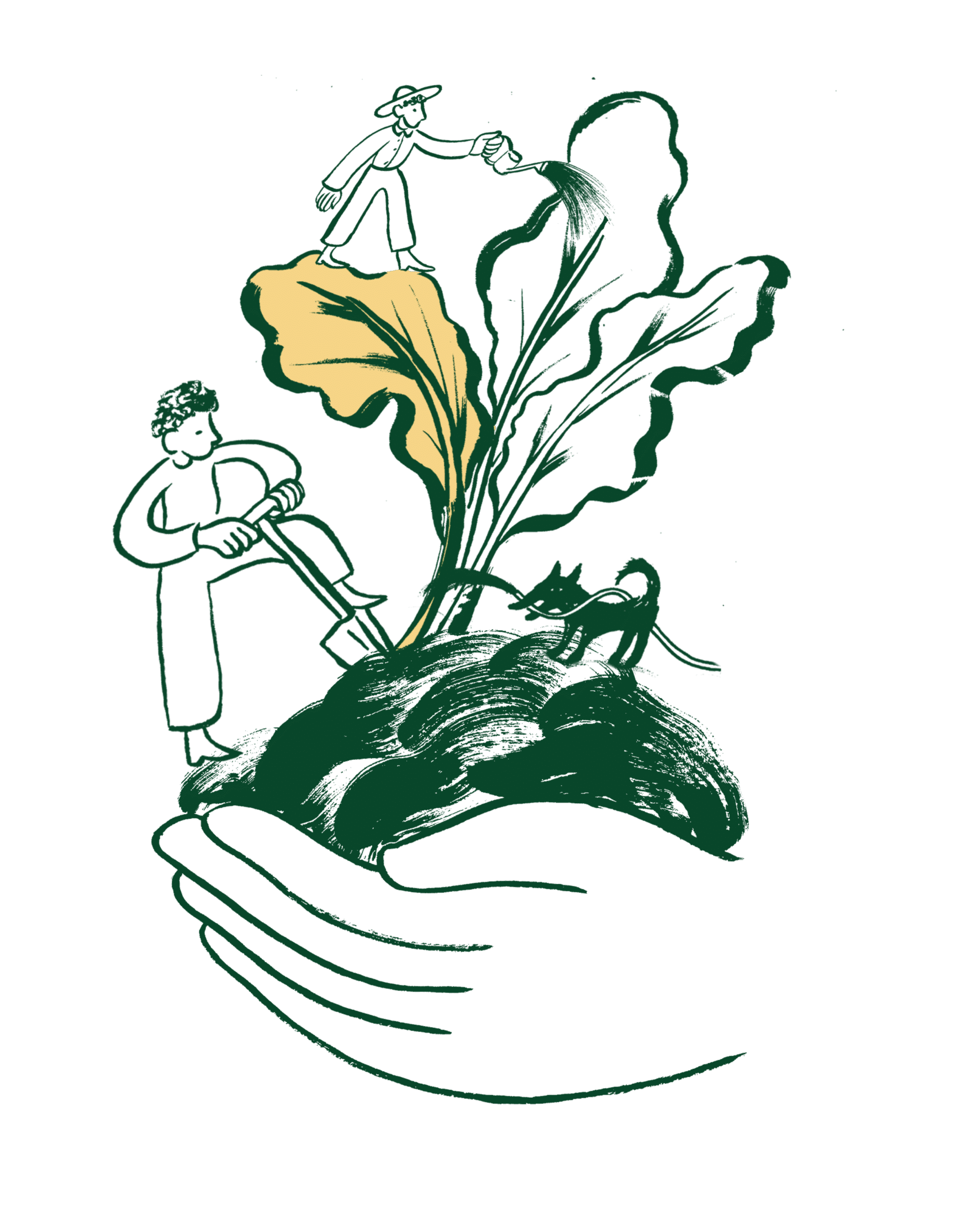
Juntos, fazemos crescer a mudança
Há várias formas de contribuir para esta transformação: através de doações, do voluntariado e do apoio direto aos nossos projetos. Cada gesto conta para cultivar cidades mais justas, verdes e participativas.
Notícias
e Eventos
Acompanha o que temos andado a semear – novidades, eventos e partilhas que marcam o nosso caminho.
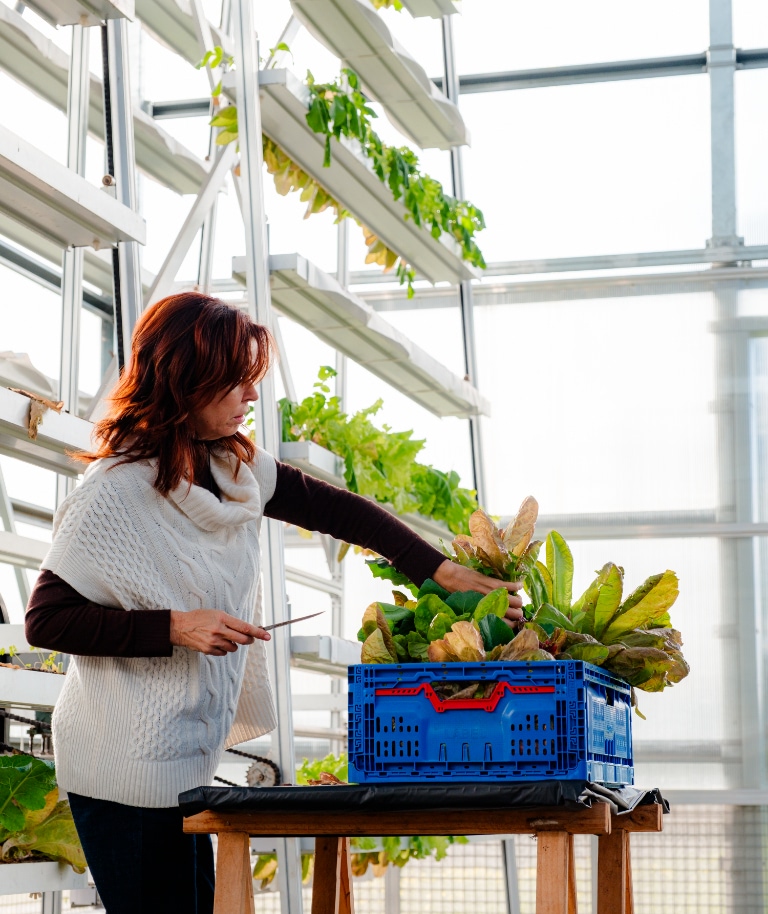
Colheita aberta à comunidade
Abrimos as portas da Estufa Comunitária de Alvalade para uma tarde de partilha, conversa e colheita.
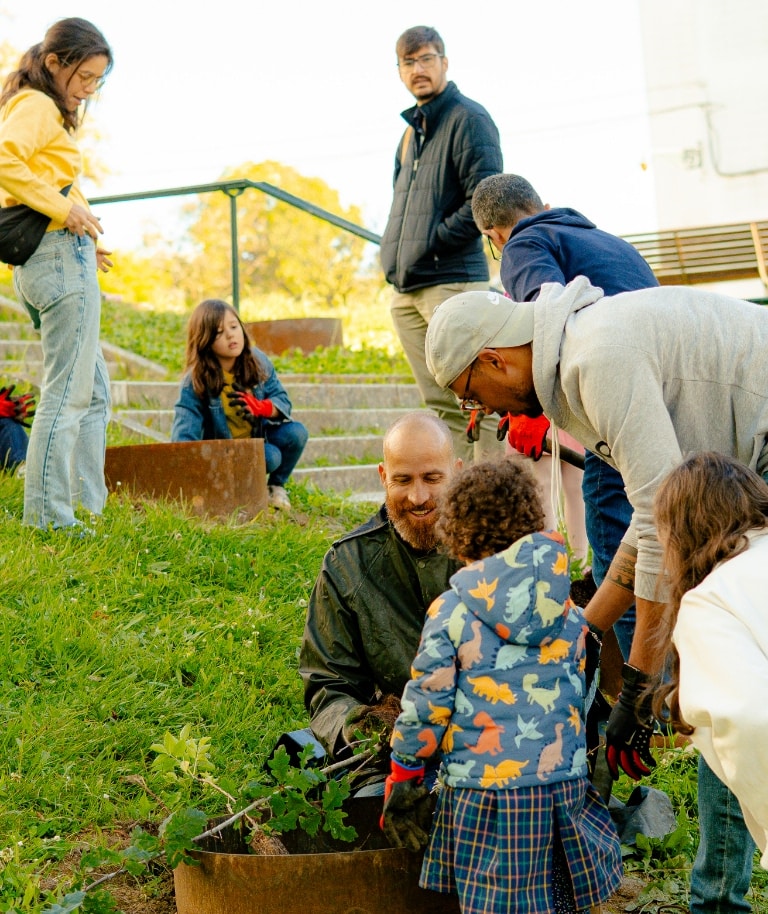
Plantação da agrofloresta no Bairro Novo de Carnide
Pusemos as mãos na terra com moradores, famílias e parceiros para plantar árvores em Carnide. Esta foi mais uma etapa de um projeto que está a tornar a freguesia mais verde, mais comestível e mais comunitária.
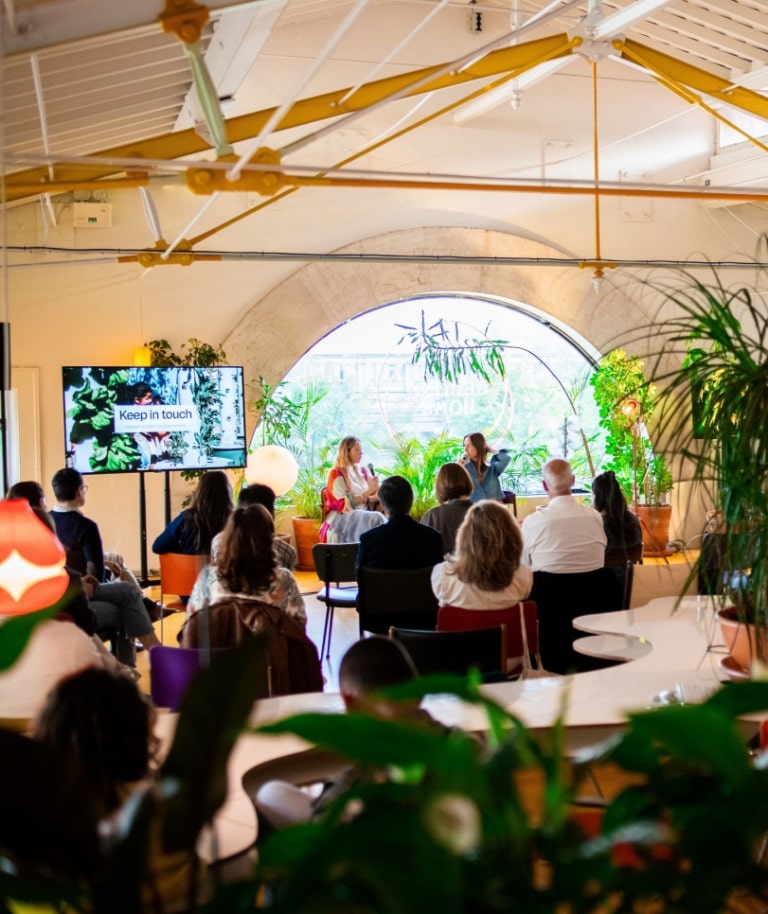
Conversa na Second Home Lisboa
A nossa cofundadora Margarida Villas-Boas esteve na Second Home Lisboa para a primeira sessão do ciclo Explorer’s Mind. Falou sobre como a agricultura pode transformar espaços improváveis — como prisões — em lugares de educação, reintegração e futuro.
Perguntas mais frequentes
Sim. A Upfarming é uma associação sem fins lucrativos e a nossa missão é promover a literacia alimentar, o desenvolvimento comunitário e o bem-estar urbano através de projetos holísticos de agricultura urbana.
Uma horta vertical é um sistema de cultivo que utiliza estruturas verticais para fazer crescer plantas e alimentos. É uma solução especialmente útil em contextos urbanos, onde o espaço disponível é limitado. Para além de proporcionar colheitas locais, estas hortas ajudam a melhorar o ambiente urbano, promovem a biodiversidade e reforçam a ligação entre as pessoas e a natureza.
Os projetos da Upfarming são dirigidos exclusivamente a instituições e não a particulares. Trabalhamos com escolas, prisões, hospitais e outras entidades públicas ou coletivas interessadas em transformar os seus espaços através da agricultura urbana. Paralelamente, desenvolvemos também projetos comunitários em espaço público, como parte do nosso portefólio de atuação em bairros e territórios urbanos.
A principal forma de participar nos projetos da Upfarming é através do voluntariado. Os voluntários podem colaborar na construção, manutenção e dinamização das hortas verticais, contribuindo para a criação de comunidades mais verdes e resilientes. Se tiveres interesse em juntar-te a nós, entra em contacto através do email info@upfarming.org.
A Upfarming desenvolve projetos em várias regiões do país, em colaboração com municípios e instituições locais. Atualmente, temos projetos em curso nos concelhos de Lisboa, Sintra, Leiria, Torres Novas e Caldas da Rainha. Os nossos projetos estão implementados em escolas, prisões, hospitais e bairros, sempre com uma forte componente comunitária e educativa.
Quer uma horta na sua instituição?
Ajudamos a transformar espaços disponíveis em hortas educativas, terapêuticas ou produtivas, adaptadas à realidade de cada organização.